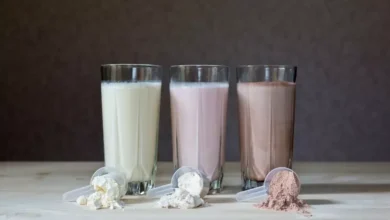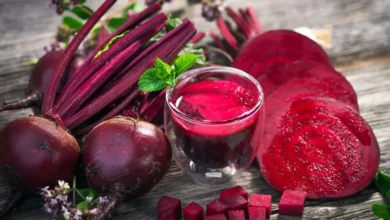Foods That Help Increase Muscle Mass
Foods That Help Increase Muscle Mass
See more CONTENT like this. Follow our PAGE

Gaining muscle mass depends on training, rest, and — most importantly — the right nutrition. Some foods are powerful allies in the muscle-building process, providing protein, essential amino acids, and nutrients that enhance recovery and promote muscle growth. Below, discover the main foods that help increase muscle mass and how to include them in your daily routine.
Foods That Help Increase Muscle Mass
Chicken – A classic source of lean protein, rich in essential amino acids needed for muscle repair and growth. It also contains nutrients like vitamin B6 and selenium, which support metabolism and recovery.
Eggs – Considered a complete protein, eggs offer all the essential amino acids for muscle formation, along with fat-soluble vitamins (A, D, E, K), phosphorus, and other micronutrients that aid tissue growth.
Cottage cheese – Packed with casein, a slow-digesting protein, it helps keep protein synthesis active for longer, especially overnight. Its low-fat content makes it a great option for lean muscle gain without excess calories.
Beans and other legumes (lentils, chickpeas) – Excellent plant-based protein sources combined with fiber, B vitamins, iron, and zinc. They provide a steady supply of nutrients and energy during and after workouts.
Fish (salmon, tuna, etc.) – High-quality protein sources rich in omega-3 fatty acids, which have anti-inflammatory effects and can improve insulin sensitivity — a factor that supports muscle growth.
Oats – A combination of low-glycemic complex carbohydrates, fiber, and moderate protein, providing sustained energy during workouts and aiding recovery through gradual glucose release.
Quinoa – A pseudocereal with a complete amino acid profile, offering plant-based protein comparable to animal sources, plus fiber, B vitamins, and minerals that fuel muscle metabolism.
Brown rice – An essential carbohydrate for replenishing muscle glycogen stores and providing steady energy during training. Rich in B vitamins, it supports cellular energy production.
Chia seeds – Small but powerful: rich in protein, fiber, and omega-3s, helping regulate blood sugar, slow gastric emptying, and prolong satiety — ideal for maintaining energy and aiding muscle repair.
Greek yogurt (unsweetened) – An excellent source of high-quality protein (casein + whey) along with calcium, essential for muscle contraction and lean mass maintenance.
Soy – A complete and highly digestible plant protein, perfect for vegetarians or those lactose-intolerant. Contains anabolic amino acids like arginine, leucine, and glutamine, important for muscle growth and recovery.
Why These Foods Are So Effective
These foods that help increase muscle mass stand out for three main reasons:
- High protein density and nutritional quality – Lean meats, eggs, and cheese provide all essential amino acids. Many plant-based sources like quinoa and soy also offer a complete profile or complement other proteins.
- Balanced macronutrient combination – Oats, brown rice, and beans balance carbohydrates, proteins, and fiber, promoting steady performance, post-workout recovery, and optimal hormonal response.
- Healthy, anti-inflammatory fats – Omega-3 from salmon and seeds like chia supports muscle recovery, inflammation control, and efficient metabolic function.
Practical Tips to Include Them in Your Routine
- Build each meal with a source of protein + whole carbohydrate + vegetable or healthy fat.
- Consume protein-rich foods at every meal and snack to maintain a steady intake throughout the day.
- Experiment with flavors and textures: quinoa with grilled chicken and vegetables, Greek yogurt with chia and fruit, or an egg white omelet with oats.
- Prefer whole or minimally processed foods for better nutritional quality.
Conclusion
Incorporating these foods that help increase muscle mass is essential for anyone looking to achieve hypertrophy effectively and sustainably. Balancing proteins, complex carbs, and healthy fats supports muscle building, recovery, and physical performance. With consistency in nutrition and training, results will naturally follow.

Hello! My name is Alan Teixeira and I am passionate about helping people live healthier, more balanced lives. From mindful eating to daily habits that promote physical and mental well-being, I believe that small, consistent changes can lead to powerful transformations.
I created this blog to share practical tips, reliable information, and thoughtful insights that can inspire you to take better care of yourself—with balance, mindfulness, and positivity.
If you are looking to improve your health, nourish your body, and build a lighter, more fulfilling routine, you are in the right place. Welcome!





